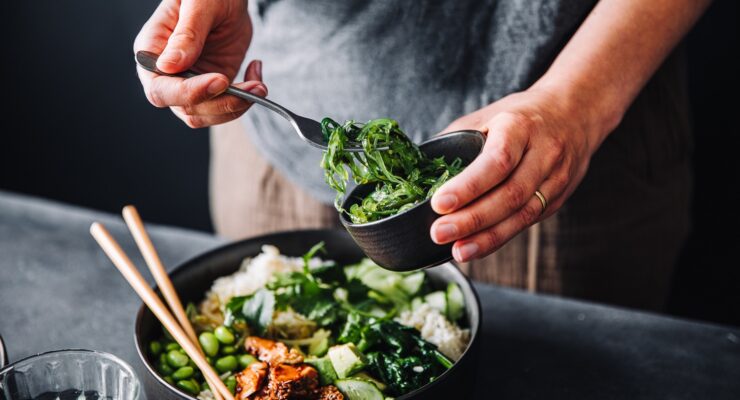The Best Prebiotic Foods to Include in Your Diet, According to a Dietitian
Article posted in: Diet & Nutrition Experts’ Corner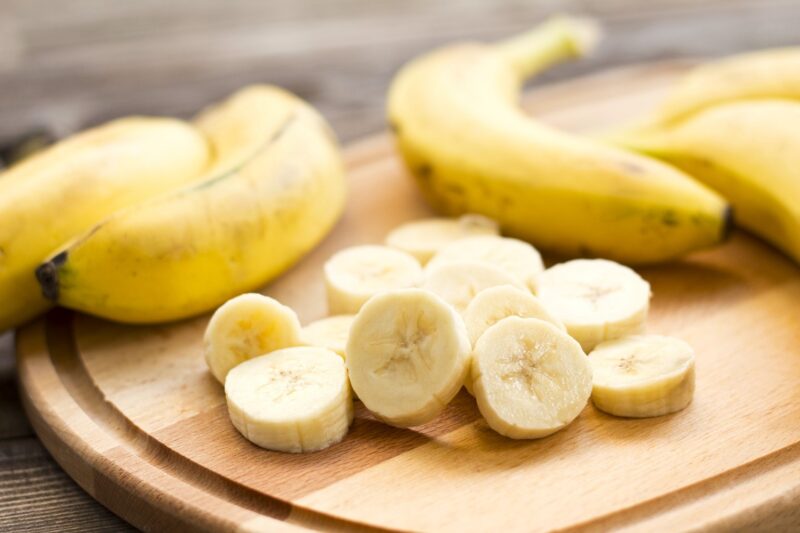
Have you ever wondered why some individuals find it easier to maintain good health and weight than others? Although genetics and lifestyle habits are major contributing factors, studies suggest that gut health may also play a significant role.
Your gut microbiome, the complex community of microorganisms that reside in your digestive tract, has been linked to various aspects of health, such as metabolism, blood sugar control and appetite regulation. Including foods that promote a healthy gut microbiome – like prebiotic foods – is one way to improve your overall well-being and support your weight management journey.
Read on to discover the power of prebiotics and how to incorporate the best prebiotic foods into your diet to support your health goals.
What Are Prebiotics?
Prebiotics are special nutrients – usually fiber – in the foods you eat that stimulate the growth of healthy microbes in your gut.
These microbes include bacteria, yeast and fungi that are collectively called your gut microbiome. Every individual has a distinctive blend of microbes, which is influenced by factors such as diet, environment and medication use.
Previously, scientists believed these microbes were just hanging along for the ride in our digestive system. However, recent research shows these tiny organisms influence your body chemistry in positive and negative ways.
For example, a gut microbiome full of diverse beneficial bacteria supports digestive, immune, cognitive and metabolic health. Conversely, a gut microbiome overrun by harmful bacteria promotes inflammation and disease.
Prebiotic foods ensure beneficial bacteria thrive and multiply, cultivating a healthy mix of microbes in your gut. This improves your health and may even help you manage your weight.
Types of Prebiotics
Prebiotics are primarily found in fiber-rich plant foods like fruits, vegetables, grains, seeds, nuts, beans and legumes. However, certain antioxidants – including those found in blueberries and dark chocolate – also act as prebiotics.
On food labels, you’ll find prebiotics listed as:
- Inulin
- Fructooligosaccharides (FOS)
- Galactooligosaccharides (GOS)
- Resistant Starch/Dextrin
- Guar Gum
- Chicory root fiber
Probiotics vs. Prebiotics
What’s the difference between prebiotics and probiotics, and do you need both? While these terms may sound alike, they serve distinct yet equally essential functions in enhancing gut health.
Probiotics are foods or supplements that contain live, healthy bacterial strains. Think: fermented foods and yogurt. Eating probiotic foods helps populate your gut with beneficial microbes.
Prebiotics are nutrients in your food that energize beneficial bacteria once they’re in your gut, helping them multiply and thrive. As these friendly bacteria grow, they crowd out harmful organisms, improving your overall digestive health.
You need both prebiotics and probiotics to support optimal gut health.
How Prebiotics Support Gut Health For Weight Loss
The microbes in your gut influence nutrient absorption, fat metabolism, hormone signaling and energy expenditure, all of which can impact your weight. In fact, research shows:
- Individuals who carry more weight tend to have less diversity in their gut microbiomes.
- Higher levels of certain beneficial bacteria may protect against long-term weight gain and promote weight loss.
The good news is that your diet heavily influences the makeup of your gut microbiome. Research has shown increasing your intake of prebiotic foods can help good bacteria flourish and support weight management by:
- Enhancing the production of appetite-suppressing hormones.
- Producing short-chain fatty acids which protect against insulin resistance.
- Reducing leptin resistance associated with obesity.
- Reducing markers of chronic inflammation that are thought to be a root cause of various metabolic diseases.
How Much Prebiotics Do You Need?
While there is no universal guideline for prebiotic consumption, experts recommend consuming three to five grams of prebiotics daily to boost gut health. Most people can achieve this by meeting the recommended daily intake of total fiber, which is between 25 to 38 grams. However, certain foods may get you there faster.
Best Prebiotics Foods To Include In Your Diet
Many plant-based foods high in fiber, such as whole grains, fruits and vegetables, are excellent sources of prebiotics. The best part is that prebiotics in these foods are highly resilient and can withstand most cooking processes, giving you plenty of options for enjoying them.
However, if you’re looking to maximize your prebiotics intake to take advantage of their many health benefits, consider incorporating these top five prebiotic foods into your diet.
1. Dandelion Greens
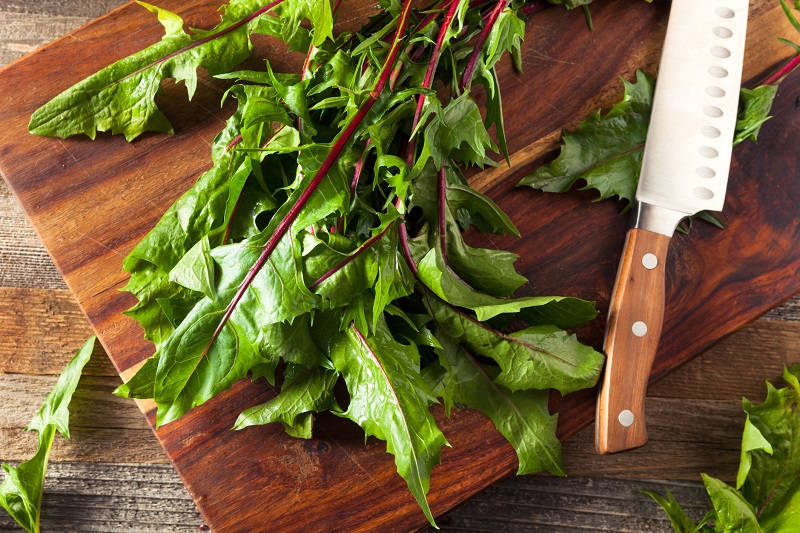
The green leafy parts of the dandelion plant are not only edible, but also rich in prebiotic fiber. One cup contains around two grams of fiber, a significant portion of which is the prebiotic inulin.
Inulin has been shown to promote the growth of a healthy microbiome and may aid in weight loss by reducing appetite and improving blood sugar control. You can enjoy the benefits of dandelion greens by mixing them raw into a salad or sautéing them as a side dish.
2. Jerusalem Artichoke
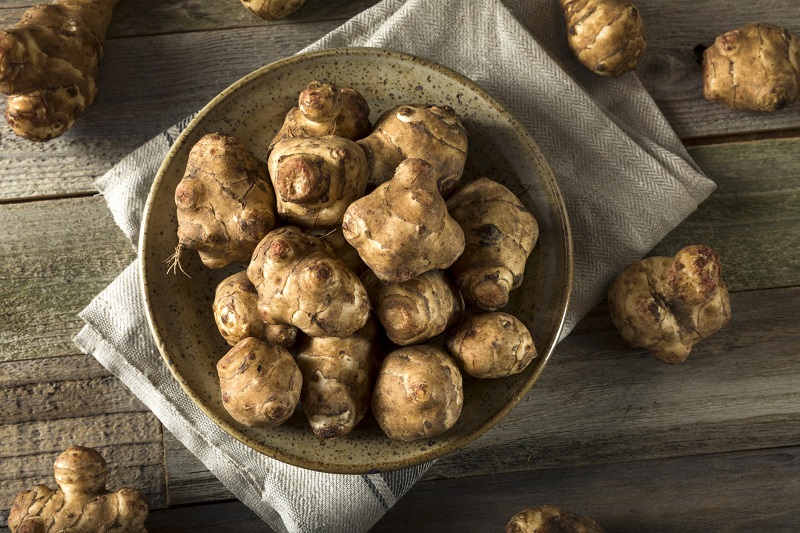
Jerusalem artichokes are root vegetables, like potatoes and carrots. Like dandelion greens, these veggies are high in inulin and other fibers that help keep your digestive system regular and support a healthy gut microbiome. You can enjoy them cubed and roasted or boiled and mashed.
3. Onions

Onions are a tasty and versatile vegetable linked to various health benefits. They’re also rich in prebiotics, inulin and FOS. FOS helps beneficial gut microbes thrive and can help manage high cholesterol while boosting the immune system.
Try including more onions in your meals by:
- Adding raw onions to your salads for a crunchy and flavorful twist.
- Caramelizing sliced onions to add a sweet and savory flavor to your pizza, sandwiches or pasta dishes.
- Loading up your shish kabobs and fajitas with extra servings of onions to add some depth to the flavors.
4. Garlic

Garlic is more than just a flavorful ingredient; it’s a nutritional powerhouse! This versatile food has been shown to reduce inflammation and support metabolic and heart health. It also contains prebiotic fibers like inulin and FOS that support the growth of beneficial gut bacteria while shielding you from harmful bacterial strains.
Whether you enjoy it roasted and spread on whole grain bread or mixed into pasta, soups and sauces, garlic is an easy and delicious way to boost your overall health.
5. Banana
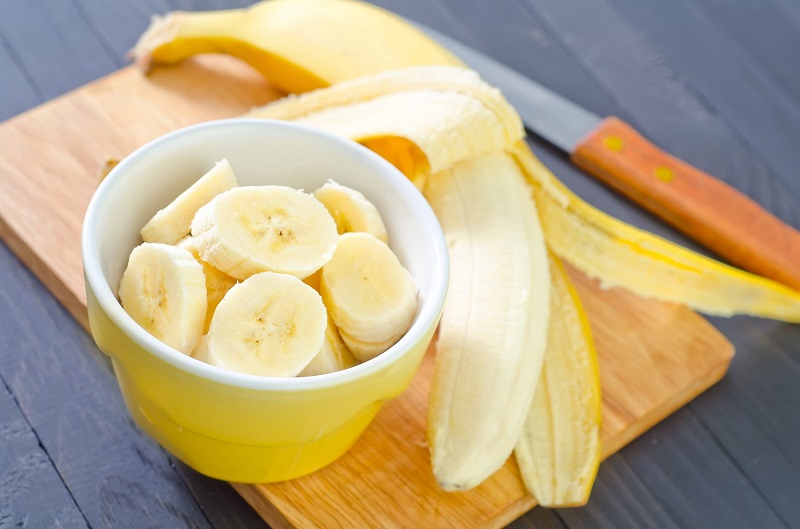
Boosting your gut health can be as easy as grabbing a banana on your way out the door. Most of the carbohydrates found in bananas are resistant starch, a type of prebiotic fiber that survives digestion and supports the growth of good bacteria in your gut. Not only does this aid digestion, but studies suggest that resistant starch can impact insulin response, fat storage and appetite-regulating hormones.
Putting it All Together for Weight Loss Success
Incorporating prebiotic fiber-rich foods into your diet is a smart move for healthy weight loss. But if you’re looking for a simple, stress-free way to include them in a well-rounded weight management plan, Nutrisystem has got you covered.
With Nutrisystem, you’ll get a comprehensive, easy-to-follow plan that meets daily fiber intake recommendations while balancing calories and macronutrients. And the best part? Many of their foods contain higher doses of fiber, including inulin, than typical store-bought products.
You won’t have to worry about label-reading or fiber counting – just choose the foods you like and follow the plan. It’s a hassle-free way to achieve your weight loss goals and improve your gut health at the same time.
References
- International Scientific Association for Probiotics and Prebiotics. Prebiotics Infographic. ISAPP. Updated January 2019. Accessed April 24. 2023. https://isappscience.org/wp-content/uploads/2019/04/Prebiotics_Infographic_rev1029.pdf
- Hills RD Jr, Pontefract BA, Mishcon HR, Black CA, Sutton SC, Theberge CR. Gut Microbiome: Profound Implications for Diet and Disease. Nutrients. 2019;11(7):1613. Published 2019 Jul 16. doi:10.3390/nu11071613
- Aoun A, Darwish F, Hamod N. The Influence of the Gut Microbiome on Obesity in Adults and the Role of Probiotics, Prebiotics, and Synbiotics for Weight Loss. Prev Nutr Food Sci. 2020;25(2):113-123. doi:10.3746/pnf.2020.25.2.113
- McLoughlin RF, Berthon BS, Jensen ME, Baines KJ, Wood LG. Short-chain fatty acids, prebiotics, synbiotics, and systemic inflammation: a systematic review and meta-analysis. Am J Clin Nutr. 2017;106(3):930-945. doi:10.3945/ajcn.117.156265
- International Scientific Association for Probiotics and Prebiotics. Prebiotics. ISAPP. Accessed April 24. 2023. https://isappscience.org/for-scientists/resources/prebiotics/
- Li L, Li P, Xu L. Assessing the effects of inulin-type fructan intake on body weight, blood glucose, and lipid profile: A systematic review and meta-analysis of randomized controlled trials. Food Sci Nutr. 2021;9(8):4598-4616. Published 2021 Jun 21. doi:10.1002/fsn3.2403
- Sawicka B, Skiba D, Pszczółkowski P, Aslan I, Sharifi-Rad J, Krochmal-Marczak B. Jerusalem artichoke (Helianthus tuberosus L.) as a medicinal plant and its natural products. Cell Mol Biol (Noisy-le-grand). 2020;66(4):160-177. Published 2020 Jun 25.
- Sabater-Molina M, Larqué E, Torrella F, Zamora S. Dietary fructooligosaccharides and potential benefits on health. J Physiol Biochem. 2009;65(3):315-328. doi:10.1007/BF0318058
- Ansary J, Forbes-Hernández TY, Gil E, et al. Potential Health Benefit of Garlic Based on Human Intervention Studies: A Brief Overview. Antioxidants (Basel). 2020;9(7):619. Published 2020 Jul 15. doi:10.3390/antiox9070619
- Birt DF, Boylston T, Hendrich S, et al. Resistant starch: promise for improving human health. Adv Nutr. 2013;4(6):587-601. Published 2013 Nov 6. doi:10.3945/an.113.004325







